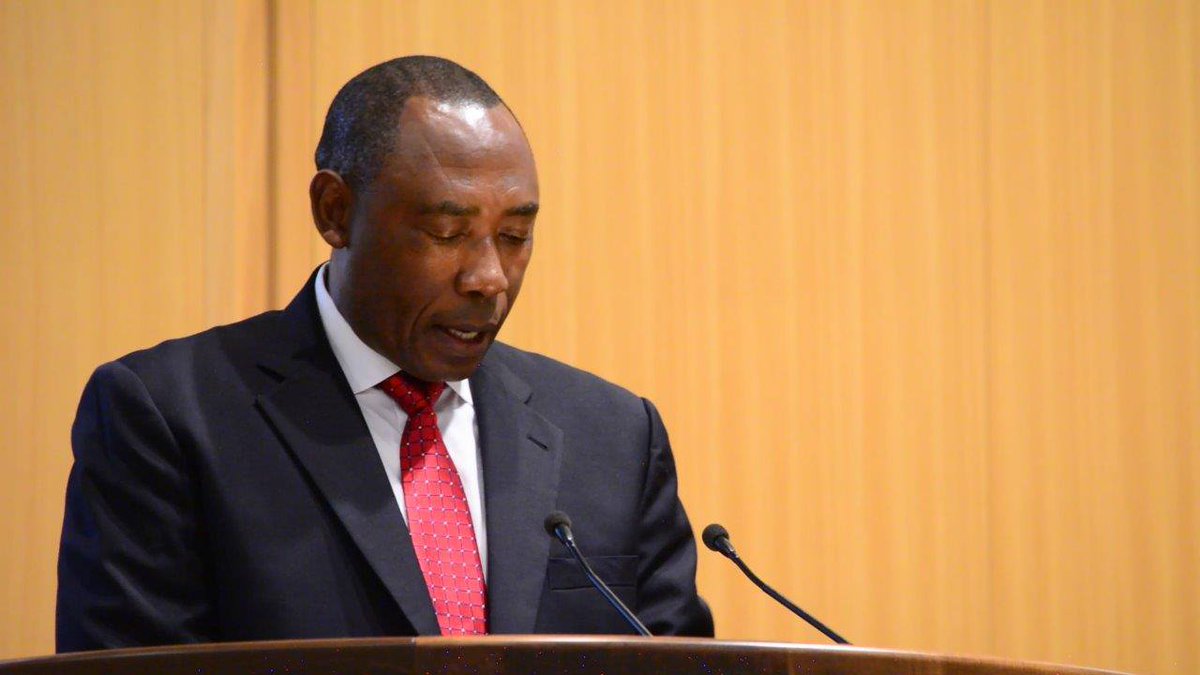advertisement
Data can help manage human mobility, says ECA’s Chinganya
Data can help Africa manage human mobility in Africa to better understand global migration trends, drivers and impacts, and to…

Data can help Africa manage human mobility in Africa to better understand global migration trends, drivers and impacts, and to support policy evaluation.
This was said by Economic Commission of Africa (ECA’s)-African Centre for Statistics (ACS) Director Oliver Chinganya during the first ever International Forum on Migration Statistics that was held in Paris, France.
The Forum, organized jointly by IOM, the UN Migration Agency, the Organisation for Economic Co-operation and Development (OECD) and UN Department of Economic and Social Affairs (UNDESA) brought together 700 statisticians, researchers, policy makers and representatives from civil society.
advertisement
Mr. Chinganya, who sat on a panel that discussed “Challenges for improving the production and use of migration statistics”, said not much has been done in recent years on migration in terms of tracking stocks and flows.
“And yet migration is a key determinant of demographic patterns and dynamics of population trends. It also contributes to inclusive growth and sustainable development. In other words, it is an engine of economic growth, innovation and sustainable development,” the ACS Director said. Data, Mr. Chinganya said, can help manage human mobility.
He highlighted the challenges not only affecting African countries but also nations in developing regions, including those with good statistical infrastructure.
advertisement
Mr. Chinganya shared with delegates what the ECA was doing working with other Pan African and international agencies in that regard.
“Political will, funding, partnership and trust, as well as tapping on the big potential are the imperatives if we are to meet the objectives of Agenda 2063 and the Agenda 2030 for Sustainable Development as well meet the data requirements,” he said.
The two-day event at the OECD Conference Centre in Paris consisted of five plenary sessions and close to forty parallel sessions.
advertisement
“More and more, we are finding that without access to reliable, comprehensive and global data, managing migration policy becomes a game of blind man’s bluff. As we prepare to meet at this forum, we need to consider migration’s human faces, of course. But we have to always keep in mind that we can’t begin to put smiles on those faces until we first grapple with the data,” IOM Director General William Lacy Swing said ahead of the Forum.
Topics discussed included improving the production of migration data, global initiatives on migration, public opinion and migration, data innovation and big data and capacity building.
The Forum brought together experts and policy makers interested in migration measurement issues; explored innovative ways to measure population mobility across countries as well as economic and social immigrant integration; and helped create synergies between different actors and perspectives, with representatives from ‘origin’, ‘transit’ and ‘host’ countries of migrants.